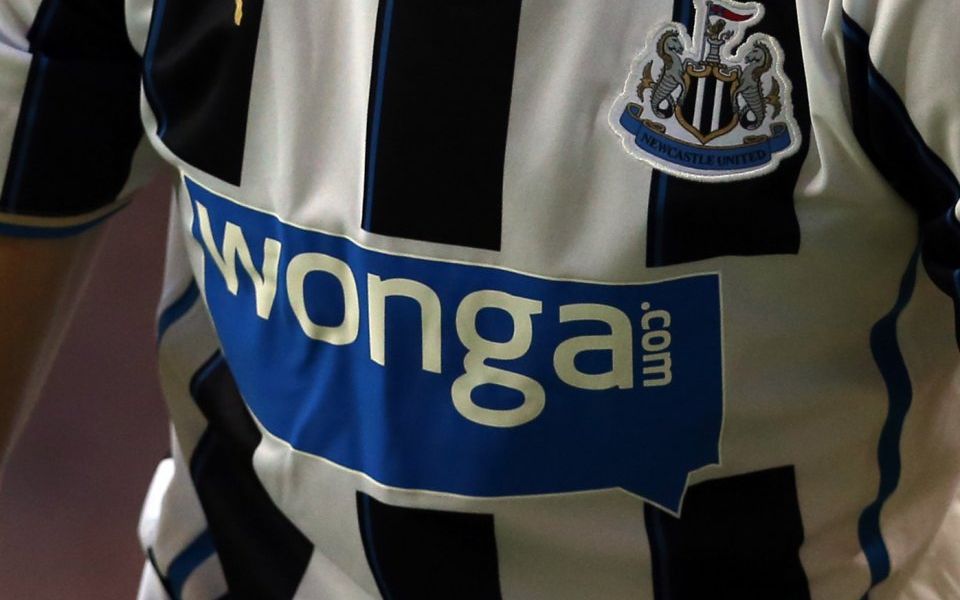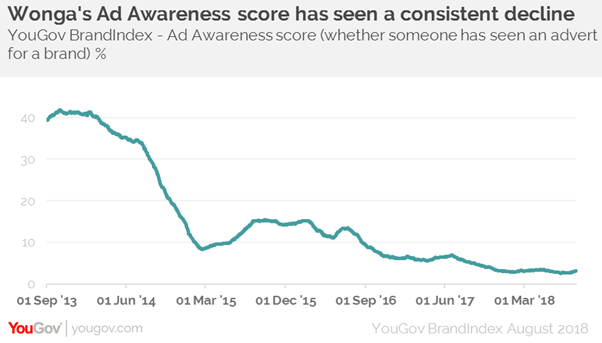Wonga’s brand perception is struggling amidst negative headlines

Over the last week rumours have swirled around one of Britain’s biggest payday lenders, Wonga, with suggestions that the brand may be close to collapse.
This apparent crisis facing the short-term loan provider relates to an apparent surge in customer compensation claims. Wonga’s financial issues have resulted in a £10m emergency cash injection from shareholders to save it earlier this month. A report from Sky News said the company could appoint administrators as soon as this week.
YouGov BrandIndex data points to where Wonga’s fortunes have fluctuated over the years.
The brand was initially very adept at garnering press coverage with its marketing activities. It had a sponsorship partnership with Newcastle United, as well as a memorable advertising campaign – which featured elderly puppets. Its ad awareness score has declined year-on-year since its high point of 42, which it achieved in late 2013. It now sits at a much lower level of three.

Notably however, it was around this time that perception of the group fell to its lowest ebb. Wonga’s impression score (whether or not someone has a positive impression of a brand) currently sits at minus 42, but this is actually an improvement from its score in November 2014, of minus 58. It was shortly after this time that payday loan caps came into force.
Despite all of this, Wonga has seen some increase in public perception. According to YouGov’s annual brand health rankings, Wonga features eighth in a list of top 10 most improved brands over a 12-month period – though of course, its score is still firmly negative.
However, this is likely to be a combination of their less aggressive marketing efforts, experiencing fewer negative headlines and controversy as well as the repayment of £220m worth of loans to 375,000 borrowers that it admitted should never have been given loans. Regulations have made it harder and harder for short-term loan providers to operate, and Wonga has certainly suffered as a result. Whether the company that was once touted for a stock exchange listing that could have valued it at more than $1bn (£780m) can survive remains to be seen.